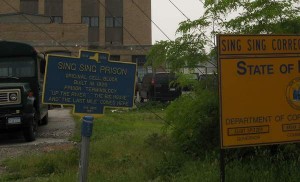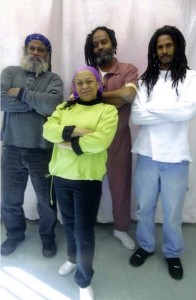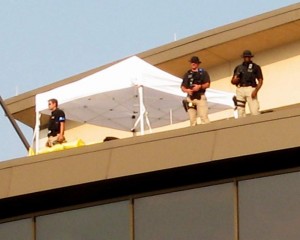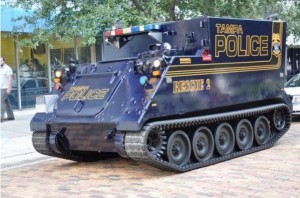Podcast: Play in new window | Download
Mass Incarceration Epidemic
On January 19, the Malcolm X Commemoration Committee 1199 SEIU activists presented the 17th Annual Dinner Tribute to the Families of our Political Prisoners & Prisoners of War. It was called Transforming Solidarity: Working Together to End Political Imprisonment and Mass Imprisonment and was held at the Martin Luther King, Jr. Labor Center in NYC.
- The Republican Party begins to craft an ideological backlash against an emerging civil rights and black power movement.
- The Republican presidential candidate at the time Barry Goldwater in a speech begins to link crime to the activism of civil rights protesters that are being incarcerated in the south.
- He is deploying one of the most atrocious fears of the white supremacist South in the post-reconstruction era to delegitamize these protests. That black men are going to rape white women.
- What we see happening in the 1960s is that fear is manufactured by these P.R. firms that are working in consultation with Republican leaders but also with police organizations, the Fraternal Order of Police, and the Police Benevolent Association.
- 1968 saw and huge amount of riots especially in the aftermath of Martin Luther King Jr’s assassination.
- The criminalization of black and Latino protesters was the major strategy used to delegitamate the aspirations and the politics of this emerging revolutionary class.
- The Omnibus Crime Control and Safe Streets Act of 1968 legalized wire-tapping and bugging by federal agents and local police without a court order.
- It also legalized on the stop search and seizure by police.
- The police are exempt from the 1964 Civil Rights Act.
- What is the purpose of this crime mania and moral panic? It’s to delegitamize the influence of black and Latino radicals of the working class of color in the nation.
- In 1970s, the apparatus of mass incarceration emerges.
- This apparatus is being deployed against the most vulnerable sections of American society in urban centers. African-Americans and Latinos that are being devastated by a crisis of de-industrialization.
- The poorest people of color are likely to resist, and this class is going to be controlled.
- It was a fabricated crisis of crime that never existed.
- Fear atomizes people they don’t start thinking in terms of community but individual.
- Crime becomes a code word for African Americans, Latinos and increasingly immigrants.
- The Black Panther Party had an analysis of oppression and inequality that addressed its root causes. It identified capitalism which is driven by profit rather than need as the problem.
- But also they had a newspaper and this is important around the issue of mass incarceration.
- Crime is an ideological wedge that is crafted by the Republican Party and the new Right in this nation for the purposes of social control.
Guest – Johanna Fernández, a native New Yorker. She received a PhD in History from Columbia University and a BA in Literature and American Civilization from Brown University. Professor Fernández teaches 20th Century U.S. History, the history of social movements, the political economy of American cities, and African-American history. She has previously taught at Carnegie Mellon University in Pittsburg, PA and Trinity College in Hartford, CT and is, most recently, the recipient of a Fulbright Scholars grant to the Middle East and North Africa that will take her to Jordan in spring 2011, where she will teach graduate courses in American History.
—-
Policing Trends at National Special Security Events
On January 21, 2013, more than 3 thousand law enforcement officers and nearly 13 thousand military troops were activated and deployed to the Washington Mall. This magnitude of security at President Barack Obama’s 2013 inauguration raised the water mark of militarized police mobilization for National Special Security Events (NSSEs) High tech weaponry, mobile checkpoints and a large uniformed presence have become common sights at major sporting events, nominating conventions and international summits. NSSEs were created under President Bill Clinton, a designation that requires federal and local law enforcement to collaborate on event security under the management of the Secret Service. The report was issued by the National Lawyers Guild on NSSE trends is the Guild’s senior researcher.
- The idea that this much security, this kind of multi-level, multi-agency is necessary is the assumption that these events are high profile, will have a lot of people and therefore are likely targets for terrorist attacks.
- There’s been about 40 NSSE’s since the designation was created and these include events like president inaugurations, state funerals, the annual State of the Union address, the Superbowl, Olympics, all International monetary organization meetings and of course the Democratic and Republican National Conventions.
- All to often we’re finding that protesters who are engaging in constitutionally protected and legitimate protest activities are lumped into this security threat.
- Over time, we’ve (NLG) have not only done legal support, we’ve also done a lot of research and writing and analysis of the different kinds of trends we see evolving.
- We wanted to use the RNC and the DNC in 2012 as case studies to look at some disturbing changing trends and express our concern that these security measures are simply becoming more normalized.
- Several months before an NSSE, the local government overrides city codes to create exceptional circumstances for these particular events. That means creating a security zone around the event itself, then limiting How When and Where people can protest within that zone.
- That can lead to limiting the times of demonstrations, the amount of people, the special permitting processes to prohibiting everyday, household items being allowed in the zone.
- What we see leading up to NSSE and this has been very consistent is the DHS and FBI circulating unsubstantiated reports that violent anarchists and outside agitators are plotting to come to these cities really to cause harm and injury – to bring explosive devices, to injure police.
- FBI informants and agents and undercover police were crucial to both encouraging and helping to set up these plots which they then use as evidence later.
- We’re asking law enforcement to stop spreading these unsubstantiated threats of protester violence before NSSEs and acknowledge that most of the violence that has taken place at NSSEs in the past has been on the part of police and not the protesters.
- The combined total of the security budget for the RNC and DNC was 100 million dollars. 50 million dollars going to each city.
- We see the continuation of the militarization of police departments and the NSSEs are playing a part in them.
Guest – Traci Yoder, National Lawyers Guild senior researcher. Before coming to the National Office, she coordinated the NLG Philadelphia Chapter. She holds master’s degrees in Library and Information Studies and Anthropology, with a focus in the latter degree on gender studies and East Africa. In Philadelphia, Traci worked on many projects in addition to the NLG, including the Wooden Shoe Book Collective and the Radical Archives of Philadelphia.



